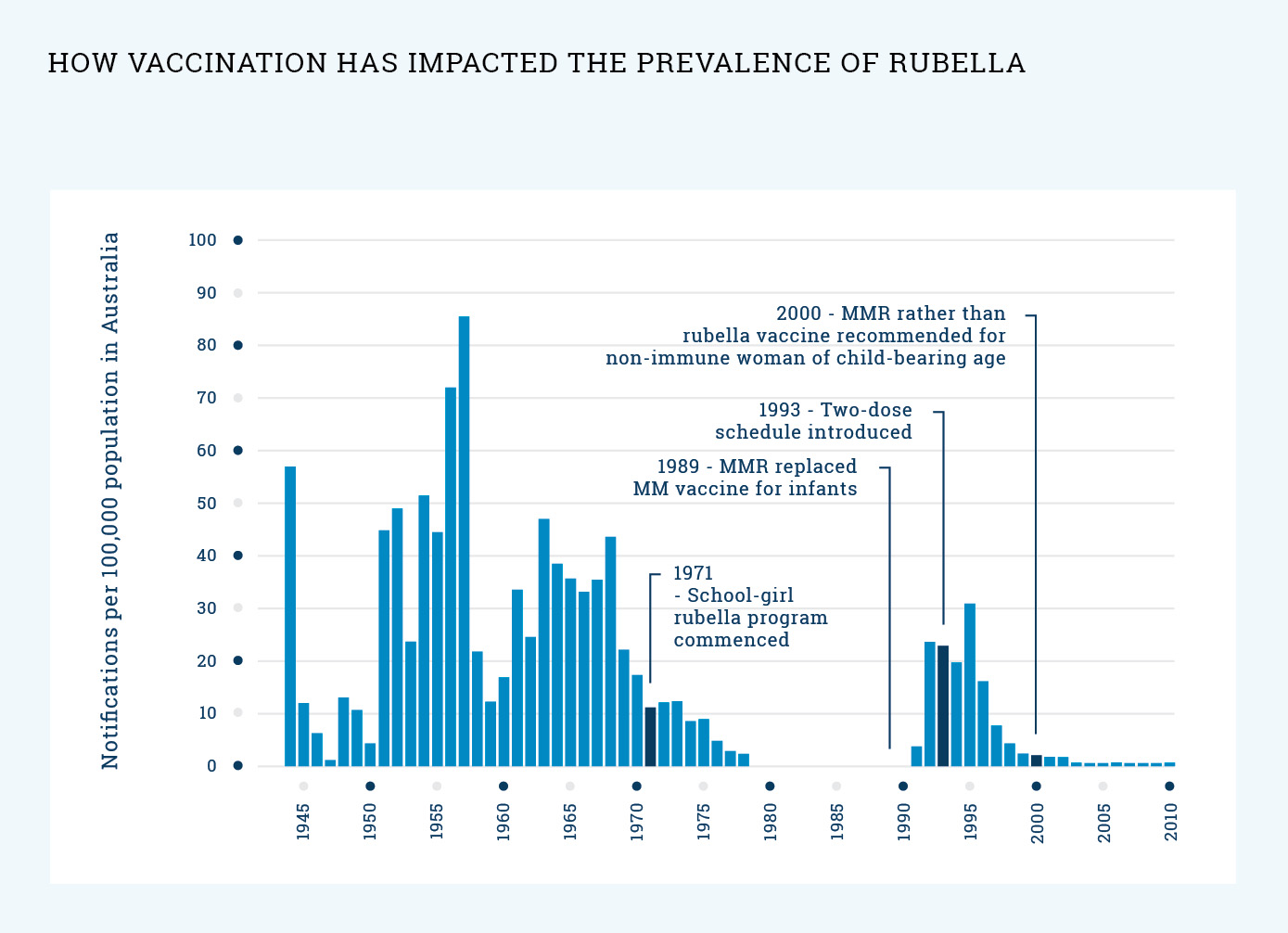Rubella
Key facts
-
Rubella (german measles) is usually very mild for children, but it can be very serious for pregnant women.
-
If a pregnant woman catches rubella, her baby will almost certainly be born with serious birth defects such as deafness, blindness or brain damage.
-
The combination vaccines that protect against rubella (MMR and MMRV) are the best way to protect your child from rubella.
On this page
- What is rubella?
- What will happen to my child if they catch rubella?
- What vaccine will protect my child against rubella?
- When should my child be vaccinated?
- How does the rubella vaccine work?
- How effective is the vaccine?
- Will my child catch rubella from the vaccine?
- What are the common reactions to the vaccine?
- Are there any rare and/or serious side effects to the vaccine?
- What impact has vaccination had on the prevalence of rubella?
